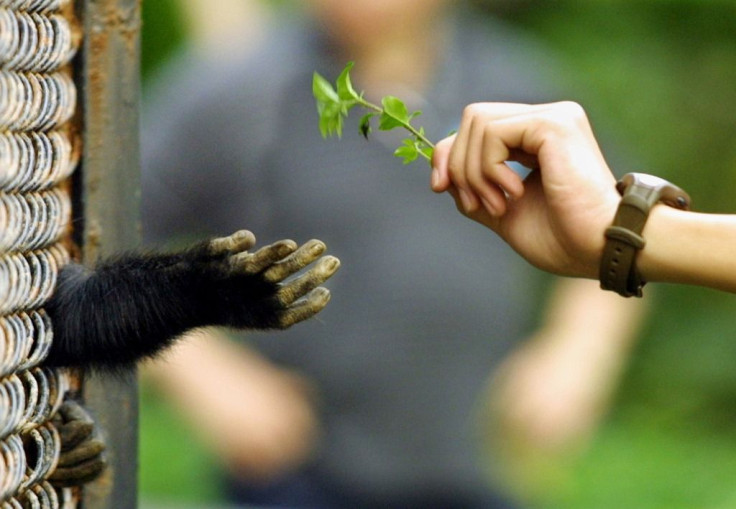US Judge Grants Human Rights To Chimpanzees

A U.S. judge allowed two chimpanzees human rights for the first time in the country. A couple of Stony Brook University lab animals were granted the right to challenge their detention.
The animals are covered by a writ of habeus corpus. New York Supreme Court Justice Barbara Jaffe’s decision may allow Hercules and Leo to be released from the university detention. Such judicial action may encourage other judges to allow the release of other lab animals as well.
The Nonhuman Rights Project, the animal rights organisation which filed the case, believes it is a big step forward to getting what it is ultimately seeking: the right to bodily liberty for chimpanzees and other cognitively complex animals.
Executive Director Natalie Prosin said that the organisation had got their “foot in the door.” “And no matter what happens, that door can never be completely shut again,” Prosin said.
Pepperdine University law professor Richard Cupp said that it would not help reading too much into the ruling. Cupp is well-known for his opposition of personhood for animals. He said that the judge might only want more information to make a decision on the legal personhood claim and might have ordered a hearing simply as a vehicle for hearing out both parties in more depth.
“It would be quite surprising if the judge intended to make a momentous substantive finding that chimpanzees are legal persons if the judge has not yet heard the other side’s arguments,” Cupp said. This is the first time in the United States that chimpanzees have been recognised as legal persons.
NhRP appealed that four chimpanzees in New York were emotionally and cognitively complex to be held in captivity. It said that they should be relocated to a chimpanzee sanctuary. The organisation based its argument on a writ of habeas corpus, typically used to stop people from being illegally imprisoned.
Three lower court judges dismissed the appeal. However, Justice Jaffe asked a Stony Brook University representative to appear to respond to the appeal on May 6.
Contact the writer: s.mukhopadhyay@ibtimes.com.au





















